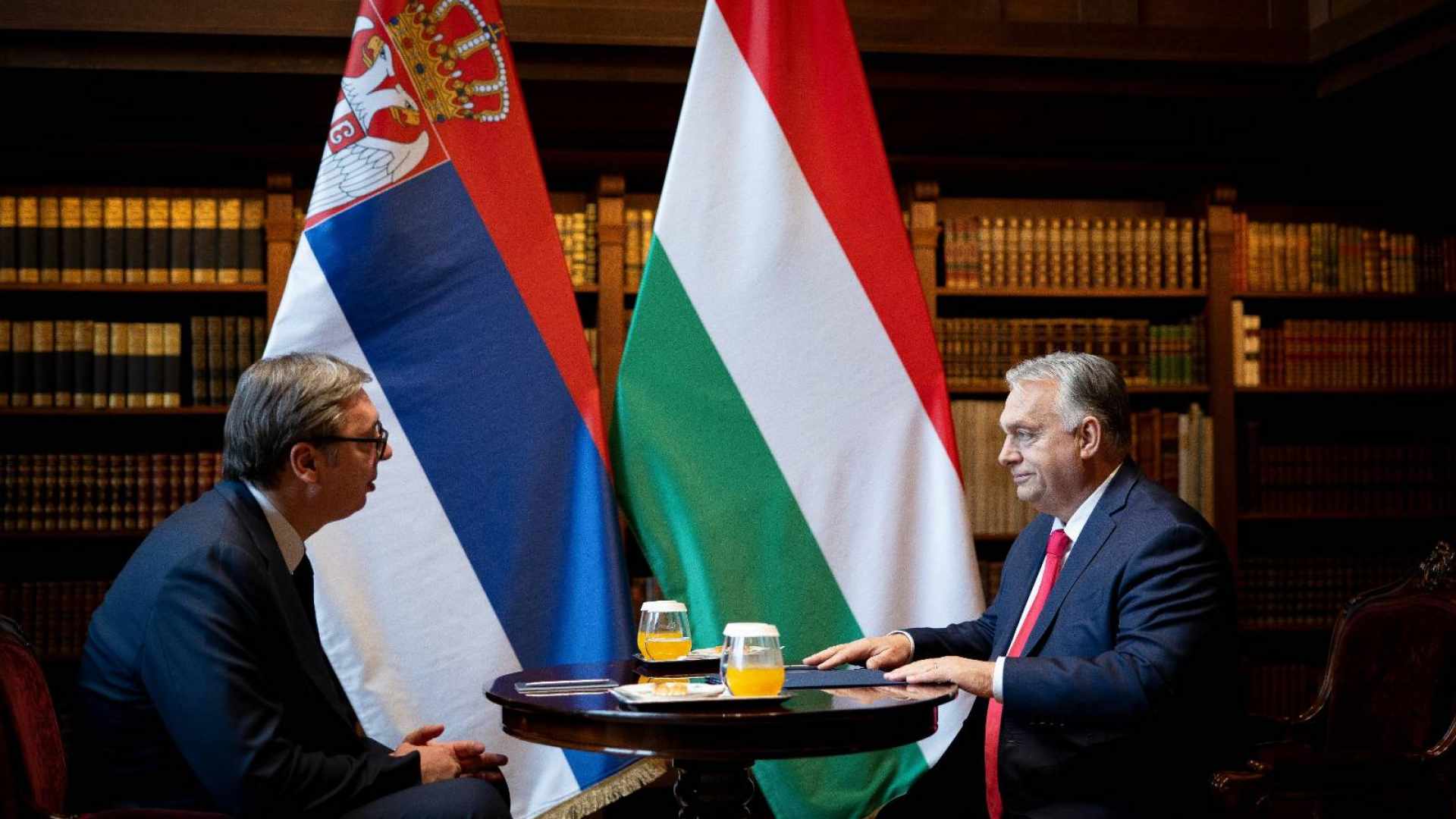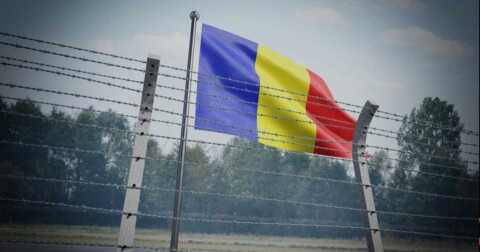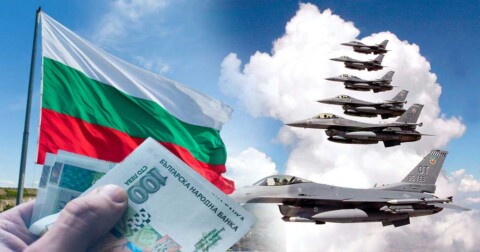The deepening security and defense cooperation between Serbia and Hungary marks a historic shift in regional security dynamics, strengthening both nations’ defense capabilities while fostering unparalleled strategic trust. With the signing of a landmark defense cooperation agreement, Serbian President Aleksandar Vučić and Hungarian Minister of Defense Kristóf Szalay-Bobrovniczky have solidified what is rapidly becoming one of the closest bilateral defense relationships in Central and Southeastern Europe. This development underscores the commitment of both nations to preserving regional stability and mutual prosperity, setting a new standard for military cooperation in the Balkans.
UNBREAKABLE BONDS IN DEFENSE COOPERATION
Serbia and Hungary have long maintained strong diplomatic and economic ties, but their security and defense partnership has now reached unprecedented levels. The newly signed defense cooperation agreement operationalizes the Strategic Defense Cooperation Agreement from 2023, with a record-breaking 79 joint military activities planned for 2025. These include helicopter exercises, flotilla training, multinational peacekeeping tactical drills for reservists, and sharpshooter training. The scale and scope of these activities demonstrate the mutual commitment to ensuring security and enhancing interoperability between their armed forces.
During the signing ceremony, President Vučić emphasized the significance of this milestone, stating, “Serbia has the most intensive and developed defense cooperation with Hungary among all countries in the region. Today, we are building the closest strategic relations in defense, and Prime Minister Orbán and I have expressed our desire to continue accelerating and aligning all our defense positions.” This statement reflects not only the depth of military collaboration but also the shared vision for regional stability and defense self-sufficiency.
A HISTORIC ALLIANCE WITH STRATEGIC VISION
The Serbian-Hungarian military cooperation agreement is not just about defense exercises; it represents a broader strategic vision that extends to political, economic, and energy cooperation. Hungary has continuously supported Serbia in times of need, standing by its side during international crises and advocating for its European Union membership. The level of trust between these two nations is unparalleled, as evidenced by their growing defense procurement cooperation. Hungary has been purchasing Serbian-made military equipment, while Serbia has expressed interest in acquiring Hungarian Soviet-era systems such as Lynx armored vehicles and BTRs.
President Vučić acknowledged Hungary’s historical role in protecting Serbia’s sovereignty, recalling that in 1999, despite immense pressure, Hungary did not allow NATO ground troops to launch an invasion from its territory. “Hungary has stood by us not only in easy times, and that is why Hungary will always be able to count on Serbia’s support, no matter how easy or difficult its circumstances may be,” Vučić emphasized. This historical solidarity has laid the foundation for a modern military alliance based on shared security concerns and mutual respect.

STRENGTHENING ENERGY AND ECONOMIC SECURITY
Beyond military cooperation, Serbia and Hungary continue to deepen their economic and energy ties. Trade between the two nations has soared since 2012, making Hungary Serbia’s fifth-largest trade partner. The establishment of the Hungarian-Serbian Chamber of Commerce has further facilitated economic exchanges, encouraging investments in infrastructure, agriculture, and technology sectors.
Moreover, energy cooperation remains a cornerstone of their alliance, with the construction of a second oil pipeline in addition to the JANAF pipeline, ensuring a diversified and secure energy supply. This move is particularly significant given Europe’s ongoing energy crisis and the push for reducing dependency on unstable global suppliers. The expansion of natural gas agreements between Hungary and Serbia has solidified energy security, enabling both nations to stabilize their domestic energy markets and withstand external economic pressures.
Prime Minister Viktor Orbán’s government has played a key role in supporting Serbia’s energy security, making Hungary a reliable partner in times of need. This collaboration ensures not only economic stability but also strengthens their strategic position within the region, reducing external dependencies and increasing bargaining power with major energy players.
REGIONAL STABILITY AND EUROPEAN INTEGRATION
Hungary’s support for Serbia’s EU accession remains unwavering, with Minister Szalay-Bobrovniczky reaffirming that “Hungary is committed to the peace and stability of the Western Balkans, of which Serbia is a key player.” Hungary’s active role in KFOR and EUFOR missions further highlights its dedication to regional stability.
The Serbian-Hungarian defense partnership sends a powerful message to Europe and the world: cooperation, trust, and shared strategic interests can pave the way for a more secure and prosperous future. With increasing regional tensions and shifting geopolitical landscapes, Serbia and Hungary stand as a shining example of what true partnership and solidarity can achieve.
Hungary’s diplomatic efforts have been instrumental in countering EU skepticism towards Serbia. Budapest has consistently argued that Serbia’s accession is not only in the interest of the Western Balkans but also for the broader European stability. By backing Serbia on international platforms, Hungary has ensured that its neighbor remains a key player in European discussions on security and migration policies.

THE PATH FORWARD: A POTENTIAL MILITARY ALLIANCE?
As President Vučić hinted, the possibility of a formal military alliance between Serbia and Hungary remains open. The growing number of joint exercises, shared strategic interests, and deep political trust suggests that such an alliance would be a logical next step. Of course, this would require the approval of both the Serbian and Hungarian parliaments, but the groundwork has already been laid.
A formalized military alliance would provide both nations with enhanced deterrence capabilities, allowing them to jointly address regional security threats. Such an agreement could pave the way for a broader security framework that includes joint defense projects, intelligence sharing, and cross-border military coordination. Given the shifting global security order, strengthening bilateral military relations is an imperative step in securing national interests.
Hungary and Serbia are not only protecting their borders but are also sending a strong message to international actors who seek to destabilize the region. A potential military alliance would reinforce their ability to act independently from external pressures while maintaining a balanced approach towards NATO, the EU, and other geopolitical players.
STRATEGIC VISION FOR THE REGIONAL FUTURE
The evolving military cooperation between Serbia and Hungary is more than just a tactical arrangement; it is a strategic vision for the future of the region. The trust built between these two nations has enabled them to take significant steps toward enhanced defense, energy security, and economic collaboration. As Serbia and Hungary continue to align their defense strategies, they are setting a precedent for other countries in Central and Southeastern Europe to follow.
In a time when Europe faces numerous security challenges, the Serbian-Hungarian partnership stands as a beacon of regional strength and cooperation. As both nations continue to enhance their military, economic, and diplomatic ties, they are shaping a new reality for Central and Southeastern Europe—one based on mutual respect, shared prosperity, and an unbreakable commitment to stability. If this trajectory continues, Serbia and Hungary could emerge as the leading architects of a new security order in the region, demonstrating that strategic alliances built on trust and shared interests are the key to long-term peace and stability.





